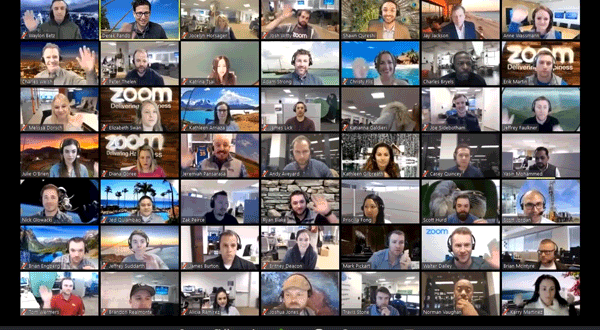Zoom Fatigue

"Zoom fatigue” is a new term for 2020 that describes the exhaustion, worry, or burnout associated with overusing virtual platforms of communication. I am sure that Zoom Video Communications (the company) is thrilled to have their name mixed in with "fatigue." Like other generic trademarks, it is a mixed blessing when your brand becomes the common (lower case) noun or a verb for something. People used to say they were going to "xerox" something to mean they were going to make a photocopy no matter what brand of copier they were using. Today someone might say they have to zoom or have a zoom call to mean they are going to video conferencing. I know that some teachers and students who are experiencing "zoom fatigue" at the end of the year and semester have been using Google Meet, Skype, Facetime, or some other conferencing platform.
Since there are more than 300 million daily participants on Zoom alone, this psychological and physical exhaustion is a real concern. Some people who study this have suggested some counterintuitive explanation, such as that audio is main reason that video meetings are draining. How? Millisecond delays in virtual verbal responses negatively affect our interpersonal perceptions, even without any internet or technical issues.
Being on a video call requires more focus than a face-to-face chat, says another researcher. "Video chats mean we need to work harder to process non-verbal cues like facial expressions, the tone and pitch of the voice, and body language; paying more attention to these consumes a lot of energy. “Our minds are together when our bodies feel we're not. That dissonance, which causes people to have conflicting feelings, is exhausting. You cannot relax into the conversation naturally."
One of the Google search trends this year has been searching "zoom fatigue", possibly in search of ways to reduce the fatigue. The ways to at least reduce video conferencing exhaustion are not surprising but they may not be easy to put in place. Suggestions such as building in break time, reducing visual stimuli, reducing virtual social events, and using phone calls and email again are helpful but not always an option, especially if you are not the video conference organizer or host.
A psychiatric explanation of zoom fatigue
Zoom fatigue is taxing the brain
Trackbacks
Trackback specific URI for this entryThe author does not allow comments to this entry
Comments
No comments